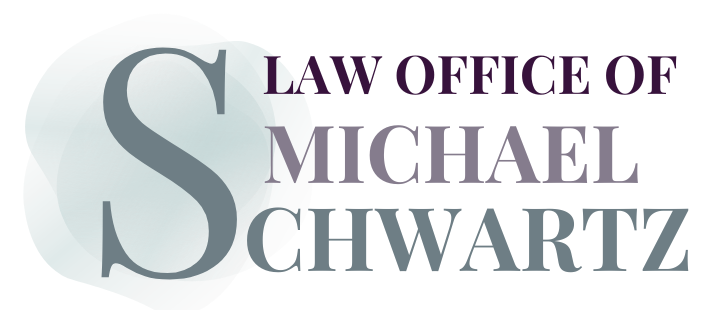Life Events That Can Lead to Financial Ruin: What You Need to Know
Nobody plans for bankruptcy. Yet, every year, hundreds of thousands of Americans find themselves facing this difficult decision, with an increasing number declaring bankruptcy each year. While it’s easy to assume that financial irresponsibility leads to bankruptcy, the reality is far more complex. Most people who file for bankruptcy are hardworking individuals who encountered unexpected life circumstances beyond their control.
Understanding the most common triggers can help you recognize warning signs and take proactive steps to protect your financial future. More importantly, if you’re already facing these challenges, knowing you’re not alone — and that solutions exist — can provide hope during a difficult time.
The bankruptcy attorney at the Law Office of Michael Schwartz will break down the four major life events that most frequently push families toward bankruptcy and explore what options are available when debt becomes overwhelming.
1. Medical Emergencies Create Perfect Financial Storms
Healthcare costs remain the leading cause of personal bankruptcy filings across the United States. Even families with health insurance can find themselves drowning in medical debt after a serious illness or accident.
The numbers are staggering. A 2019 study revealed that medical issues contributed to nearly two-thirds of U.S. bankruptcies. High deductibles, co-pays, and treatments not covered by insurance can quickly accumulate into tens of thousands of dollars in out-of-pocket expenses.
But medical emergencies create a double financial blow. A severe health problem often makes it impossible to work, creating a devastating combination of mounting medical bills and sudden income loss. When someone can’t earn money while medical expenses pile up, even middle-class families can exhaust their savings within months.
2. Job Loss Quickly Depletes Financial Resources
Unemployment strikes without warning, and its financial impact can be immediate and severe. For families living paycheck-to-paycheck — which describes most American households — job loss creates an instant crisis.
When regular income stops, fixed expenses like mortgage payments, car loans, and credit card minimums don’t pause. Many people turn to credit cards to cover basic living expenses while searching for new employment. Unfortunately, job searches often take longer than expected, especially for older workers.
Even when new employment is found, it may come with reduced pay or benefits. This underemployment can create long-term financial strain, making it difficult to pay down debt accumulated during the job search period.
The psychological stress of unemployment can also lead to poor financial decisions. Desperation might push someone toward high-interest payday loans or cash advances, creating additional debt burdens that become increasingly difficult to manage.
3. Divorce Doubles Expenses While Dividing Income
Divorce represents one of the most financially destructive life events a family can experience. The process itself is expensive, with attorney fees and court costs often reaching thousands of dollars. But the long-term financial impact is even more significant.
Divorce typically means taking one household’s worth of income and using it to support two separate households, especially if there are children involved. Suddenly, there are two sets of rent or mortgage payments, two utility bills, two insurance policies, and doubled living expenses across the board. Meanwhile, income often remains the same or even decreases due to alimony and child support obligations.
Shared debt becomes particularly problematic during divorce. Credit cards, mortgages, and loans acquired during marriage remain the legal responsibility of both parties, regardless of who the divorce decree designates as the responsible party. If one ex-spouse files for bankruptcy or simply stops paying, creditors can pursue the other party for the full amount.
The credit damage from divorce can last for years. Late payments, closed accounts, and high debt-to-income ratios resulting from divorce proceedings can significantly lower credit scores, making it more expensive to secure housing, transportation, or even employment.
4. Death of a Spouse Brings Unexpected Financial Burdens
Losing a spouse is emotionally devastating, but the financial consequences can be equally overwhelming. The death of a partner often means the loss of a significant portion of household income, sometimes the primary breadwinner’s entire salary.
Surviving spouses may discover they’re responsible for debts they didn’t know existed or fully understand. Joint credit cards, co-signed loans, and shared mortgages become the survivor’s sole responsibility. During the probate process, creditors can also make claims against the deceased’s estate, potentially reducing inheritance or forcing the sale of family assets.
Funeral and burial expenses add immediate financial pressure during an already difficult time. These costs, which can easily exceed $10,000, often come due when the surviving spouse is least equipped to handle additional financial stress.
Many surviving spouses also discover that their late partner handled most financial matters, leaving them unprepared to manage budgets, pay bills, or make important financial decisions during their grief.
Additional Financial Pressures Compound the Problem
While medical emergencies, job loss, divorce, and spousal death represent the most common bankruptcy triggers, other factors often contribute to financial collapse:
- High-interest debt can quickly spiral out of control. Credit cards with rates exceeding 20% make it nearly impossible to pay down balances, especially when only minimum payments are made. Payday loans and other predatory lending products can trap borrowers in cycles of debt that become increasingly difficult to escape.
- Business failure can consume personal savings and assets, especially for small business owners who personally guaranteed business loans or used personal credit to fund operations. When a business fails, owners often face both business debts and personal financial ruin.
- Unexpected major expenses can push already-strained budgets over the edge. A major home repair, vehicle breakdown, or other emergency expense can force families to take on additional high-interest debt when they’re already struggling to make ends meet.
Professional Help Offers a Path Forward
When debt becomes overwhelming, professional guidance can make the difference between financial recovery and prolonged struggle. Michael Schwartz, with over 20 years in bankruptcy law, understands that filing for bankruptcy isn’t a sign of failure—it’s often the most practical solution for restoring financial stability.
The Law Office of Michael Schwartz focuses on helping individuals and families navigate complex debt management decisions. Through comprehensive Chapter 7 and Chapter 13 bankruptcy counseling, clients receive personalized guidance based on their specific financial situation.
During initial consultations, potential solutions are explored thoroughly. This includes discussing bankruptcy options like Chapter 7 and Chapter 13, their respective advantages and disadvantages, and alternatives such as debt settlement programs and credit counseling. The goal is to help clients make informed decisions that align with their long-term financial goals.
Serving Bucks County, Delaware County, Montgomery County, and the entire Philadelphia region, Michael Schwartz provides the skilled guidance needed to evaluate all available options and choose the path that offers the best opportunity for financial recovery.
Taking Control of Your Financial Future
Life’s unexpected challenges can create financial difficulties for anyone, regardless of income level or financial planning. Medical emergencies, job loss, divorce, and spousal death represent circumstances largely beyond our control, yet their financial impact can be devastating.
The key to recovery lies in recognizing when professional help is needed and taking action before the situation becomes unmanageable. Bankruptcy, while not ideal, can provide the fresh start necessary to rebuild financial stability and improve long-term credit health.
If you’re struggling with overwhelming debt or facing one of these challenging life events, you don’t have to navigate the situation alone. Contact The Law Office of Michael Schwartz for a free consultation to explore your options and take the first step toward restoring your financial well-being.


